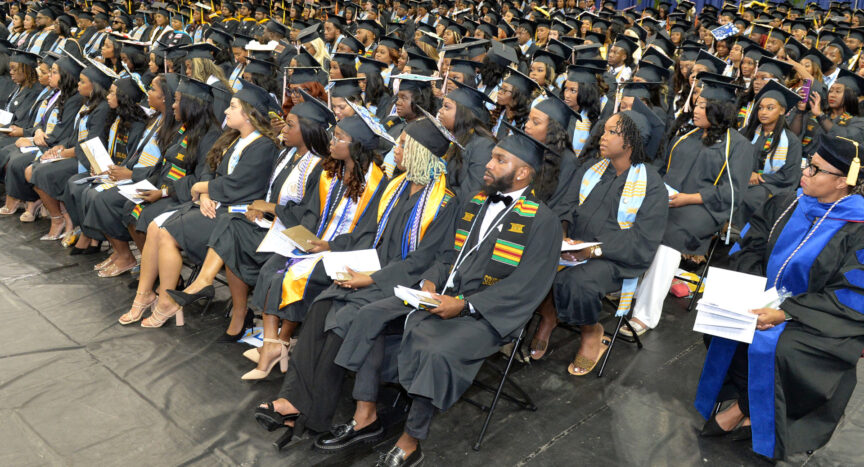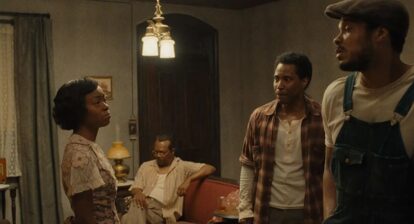If our HBCUs did not exist, we would need to invent them. But they do exist, and it is our responsibility to support them.
For nearly two centuries, Historically Black Colleges and Universities (HBCUs) have served as powerful beacons of hope, academic excellence, and community leadership. These remarkable institutions, which began as humble places to educate women and men after emancipation, have grown into vibrant centers of higher education, cultural preservation, and social transformation.
In this pivotal moment in our nation’s history, where the challenges of inequality and systemic racism still loom large, HBCUs are more critical than ever. The collegiate experience at an HBCU can deepen students’ sense of belonging and strengthen their commitment to be of service, not only to their community, but to Black communities across our nation and our world. It is a unique experience grounded in the understanding that, for Black students, education is not only about personal advancement but also about contributing to uplifting our communities.
I believe in the transformative power of education. During the years when I served as the president of Spelman College and Bennett College, I saw it and I felt it, as I witnessed Black women fully own who they are and to go on to soar to the heights of their possibilities.
At our 107 HBCUs, students learn about heroes, sheroes, and theyroes—individuals who were once students just like them and who went on to become leaders in the movements for civil rights, women’s rights, and LGBTQ rights. HBCU students who went on to be leaders in the movement would include Dr. Martin Luther King, Jr. (Morehouse), Ruby Doris Smith Robinson (Spelman College), Thurgood Marshall (Lincoln and Howard Universities), Rev. Jessie Jackson (North Carolina A&T), Diana Nash (Howard and Fisk Universities), Bayard Rustin (Wilberforce and Cheyney Universities), Nikki Giovanni and John Lewis (Fisk University). Howard University is the alma mater of the Vice President of the United States, Kamala Harris. Our HBCUs are institutions where students dare to imagine a better world and prepare to go out and make what they imagine—a reality.
However, the contributions of HBCUs to the fabric of American society are not confined to their past. Today, HBCUs continue to produce a disproportionate number of Black doctors, engineers, teachers and entrepreneurs. In a society where racial disparities in education, health and wealth are still far too common, HBCUs serve as critical spaces for cultivating Black excellence and building pathways to success. They also serve as important economic drivers for communities in the United States as demonstrated by UNCF’s most recent HBCU Economic Impact Report. That report shows that HBCUs generate $16.5 billion in direct economic impact in the United States.
Yet, despite their extraordinary contributions, HBCUs face considerable challenges. Many of these institutions operate with fewer resources than their predominantly white counterparts, making it difficult to offer competitive salaries to faculty and staff, maintain their infrastructure and provide the range of academic programs their students deserve. This is why the work of UNCF (United Negro College Fund) is so vital. With our current $1 billion capital campaign, we are committed to ensuring the sustainability and growth of HBCUs so they can continue to serve generations to come. A hallmark of this campaign is the planned $370 million pooled endowment, which will provide unrestricted revenue for UNCF’s 37-member HBCUs. This endowment will be a game-changer, offering financial stability and ensuring that these schools can continue to provide rich educational experiences for their students.
Through this campaign, we are investing in scholarships, programmatic support, and the pooled endowment, all of which will help to secure the future of HBCUs. By growing the endowments of these schools, we can ensure that HBCUs will not only survive but thrive—offering students the same rich experiences that have shaped the lives of countless alumni.
I am often asked what makes the HBCU experience so distinct. My answer is that at our HBCUs the faculty meet their students, where they challenge and support them to become the best version of who they wish to be. And the staff provide programs and services that students need to be healthy and joyful lifelong leaders. At HBCUs, students are taught to see themselves as part of a larger narrative, a proud legacy of resilience and brilliance that stretches back to our ancestors as they look forward to the future. In a world that so often devalues Black lives, the nurturing that students receive at HBCUs is nothing short of revolutionary.
The importance of HBCUs is not just about what they represent for students, but also what they contribute to our nation and the world. By producing graduates who are ready to lead in every sector, from the sciences to the arts, from business to public service, HBCUs are shaping the future of America. And as we look ahead to the future, it is clear that the role of these institutions will continue to grow in importance.
As we celebrate the remarkable achievements of HBCUs in this special October issue of EBONY, let us not only reflect on their legacy but also commit to supporting their future. We owe to each and every student who walks through the doors of our HBCUs every year, full of hope, ambition and the determination to not only learn far more than they imagined they could but also become the person they dreamed of becoming.
Together, through our collective efforts, let us continue to deliver on the promise of Black higher education and ensure that HBCUs are strong and vibrant institutions for centuries to come.

Dr. Johnnetta Betsch Cole is widely recognized for her exceptional contributions to academia and her tireless advocacy for social justice. She has transformed institutions and empowered countless students to reach their full potential. Dr. Cole was the first Black woman to serve as president of Spelman College and she was also the president of Bennett College. She is currently the President-In-Residence of the United Negro College Fund (UNCF).



